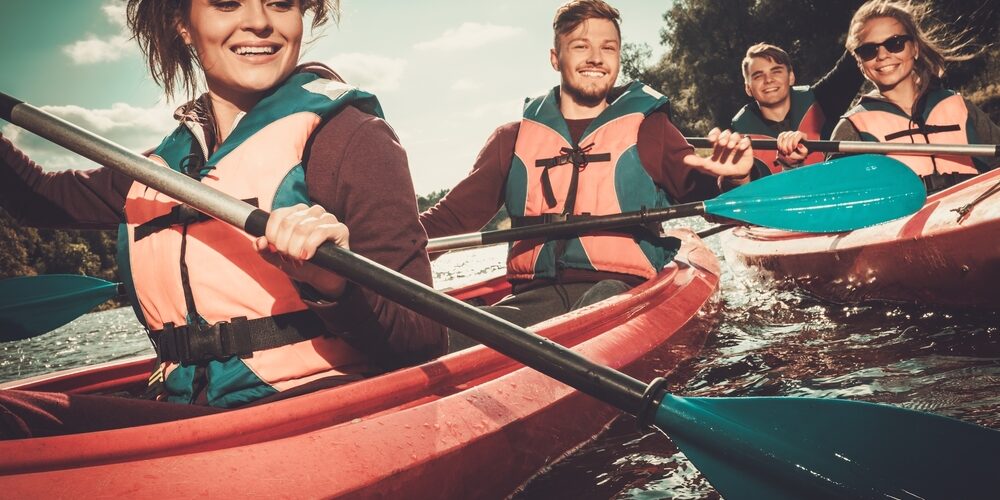We all want to escape the office for a while to spend much-needed downtime and capitalize on the summer sunshine. One of the fun things to do is get out on the water. It’s essential to make sure that when you do venture out, be prepared, and understand ahead of time any potential risks and how to cope in an emergency, especially when your family is involved.
Far too many of us ignore the hazards. Here are some tips for staying safe and getting the most out of your water activity.
1. Know Your Waters
It is surprising how many people venture out onto unknown waters without first checking for potentially serious undertows and strong currents. Fast-moving water looks fun, especially when it comes to swimming. However, you may get into serious trouble even if you’re a strong swimmer. This caution also rings true for canoeing and kayaking.
2. Take Along a Buddy or Bring a Charged Cell Phone
Have a friend or family member with you in case of emergencies when you can. Besides, it’s more fun in groups. If you decide to go out alone, make sure you have a fully charged cell phone.
3. Avoid Alcohol
Drinking while boating is illegal, leading to significant fines, and is one of the top three causes of boating fatalities. Many people ignore this rule and the effects of drinking while boating can be even more hazardous on the water than on land. The added influence of wave movement, vibration, sun, wind, and water spray can speed up the effects of alcohol and impairment. Balance is compromised, and should someone fall overboard, or the boat capsizes, an intoxicated person may not feel the cold, leading to hypothermia until it is too late.
4. Wear a Life Jacket
Not only is wearing a life jacket mandatory in most states while out on the water but ensuring you have a USCG-approved life jacket that is the correct fit for age and size is required. Life jackets must also be easily accessible and checked yearly to ensure they still maintain buoyancy. The US Coast Guard estimates that life jackets save hundreds of lives every year from drowning.
5. Be Aware of Hydration Levels
Even during overcast days, the sun creates far more havoc with our hydration and skin than when on land. UV rays reflect off water, producing a double whammy of sun exposure. Be sure to have plenty of water to drink, wear a hat, and slather on the sunscreen before heading out. You’ll be glad you did!
6. Watch Out for Changing Weather
Lightening is extremely hazardous while on the water, and storms come on suddenly, churning up the water and making activities suddenly dangerous. Keep an eye out for changing skies, and always check your marine forecast before heading out.
7. Know Your State’s Boating Rules
Each state has boating rules, and some may require either boating safety certification or a boating license, if not both, especially if children under a certain age are on board. Whether you need a license or certificate, it is always good to plan by learning about boating safety. Understand what to do in an emergency, such as if someone falls overboard, and perform a pre-boarding boat check.
Being out on the water during the warm months is an excellent way to enjoy summer. Activities can be shared or experienced alone and should always be a source of enjoyment. Being prepared keeps everyone safe so that more time is spent having fun and less time worrying. If you are taking some time away from your space at My Annapolis Office, their professional staff and services can help ensure that you will have a worry-free break.











